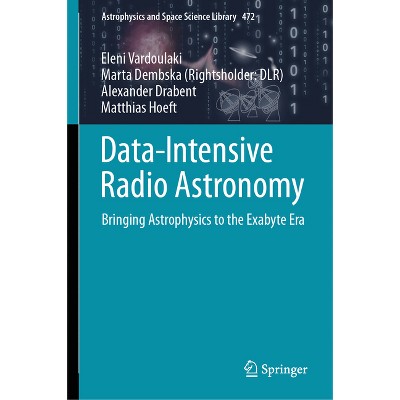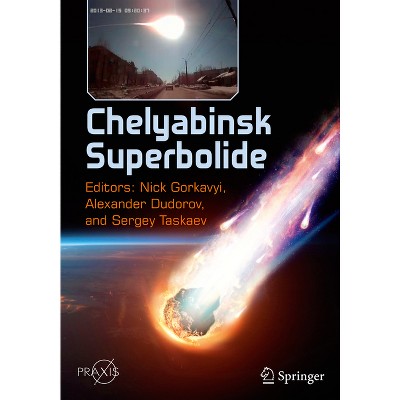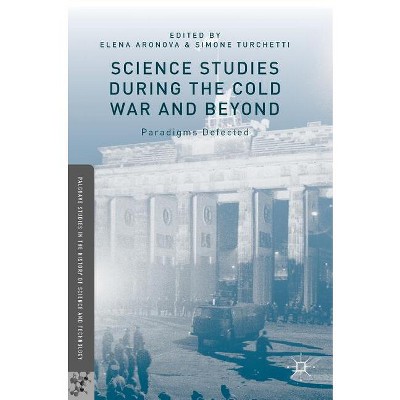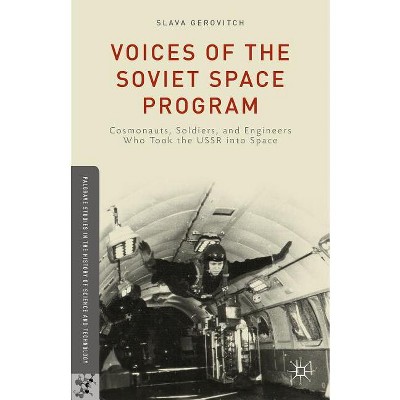Limiting Outer Space - (Palgrave Studies in the History of Science and Technology) by Alexander C T Geppert (Paperback)

About this item
Highlights
- Propels the historicization of outer space by focusing on the 1970s, the Post-Apollo era of crisis and reconfiguration Utiliises an international and transdisciplinary perspective to explore the cultural history of outer space Explores the reconfiguration of space imaginaries during the decade after the moon landings
- About the Author: Alexander C.T. Geppert is Associate Professor of History and European Studies and Global Network Associate Professor at New York University Shanghai as well as NYU's Center for European and Mediterranean Studies in New York City.
- 367 Pages
- Science, Astronomy
- Series Name: Palgrave Studies in the History of Science and Technology
Description
Book Synopsis
Propels the historicization of outer space by focusing on the 1970s, the Post-Apollo era of crisis and reconfiguration
Utiliises an international and transdisciplinary perspective to explore the cultural history of outer space
Explores the reconfiguration of space imaginaries during the decade after the moon landings
From the Back Cover
Limiting Outer Space propels the historicization of outer space by focusing on the Post-Apollo period. After the Apollo moon landings, disillusionment set in. With the return of the last astronaut in 1972, the skies - rather than the distant stars - once again became the limit. No longer considered the inevitable destination of human expansion, outer space lost much of the popular appeal, cultural significance and political urgency that it had gained since the end of the Second World War. With the rapid waning of the worldwide Apollo frenzy, the optimism of the Space Age gave way to an era of planetized limits. Bringing together the history of European astroculture and American-Soviet spaceflight with recent scholarship on the 1970s, the thirteen chapters in this cutting-edge volume examine the reconfiguration of space imaginaries from a multiplicity of disciplinary perspectives. Rather than invoking oft-repeated narratives of Cold War rivalry and an escalating Space Race between East and West, Limiting Outer Space breaks new ground by exploring a hitherto underrated and understudied decade, the Post-Apollo period.Review Quotes
"[This book] offer a fascinating reevaluation of space history from European perspectives. ... I consider these books in the wider context of scholarship on Europe and space, asking how the concept of astroculture adds to these literatures as well as what limits it might hold." (Benjamin W. Goossen, Contemporary European History, June 17, 2022)
"The scholarship is generally good, and the case studies are well chosen ... . this volume also celebrates the paradoxes of the 1970s, when idealism, power politics, and commercial savvy were seamlessly connected." (David Baneke, Isis, Vol. 110 (3), September, 2019)
"This ambitious publication program opens up new vistas in the cultural history of the space age, moving outward from accounts that prioritize the rivalry between the United States and the Soviet Union. ... This is a book worth reading and rereading, depending upon your interests. It convinces that our understanding of the ways in which the brief, forceful projection of human beings into outer space matters has often been too limited. Limiting Outer Space ... is a powerful re-survey of territory that might seem over-explored." (De Witt Douglas Kilgore, Science Fiction Studies, Vol. 46 (3), November, 2019)
"An excellent collection of essays which encompasses a wide sweep of the impact of space research and space dreams on the cultural landscape of society as a whole, beyond the limiting technological confines within which the enterprise is usually examined. ... The entire book is a thoroughly worthwhile thought-provoking read." (Barry Kent, The Observatory, Vol. 139 (1270), June, 2019)
About the Author
Alexander C.T. Geppert is Associate Professor of History and European Studies and Global Network Associate Professor at New York University Shanghai as well as NYU's Center for European and Mediterranean Studies in New York City. From 2010 to 2016 he directed the Emmy Noether research group 'The Future in the Stars: European Astroculture and Extraterrestrial Life in the Twentieth Century' at Freie Universität Berlin.
Shipping details
Return details
Trending Non-Fiction











